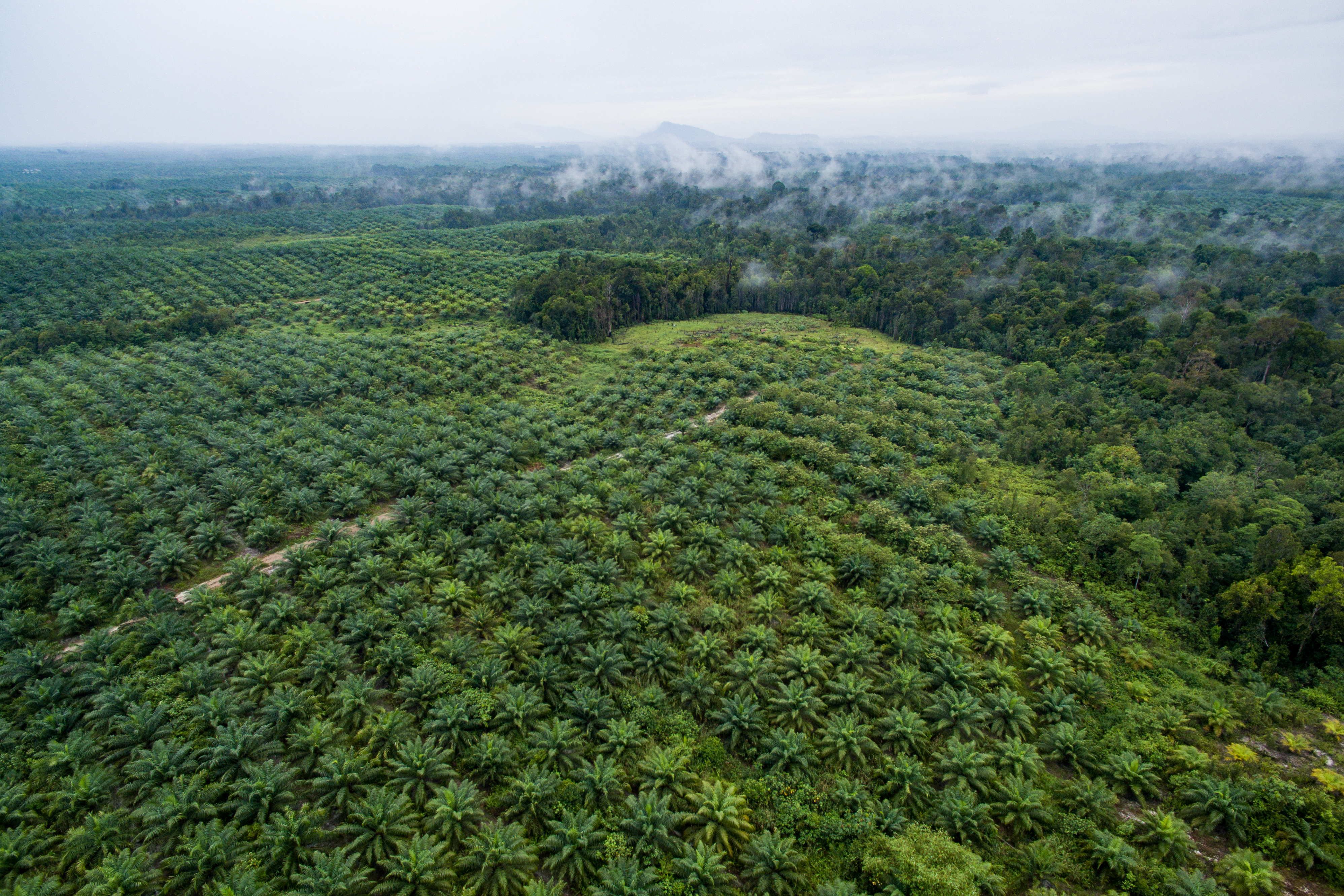
A new study by Dr Jake Bicknell looks at reducing some of the negative environmental impacts associated with this land use.
Setting aside patches of original forest on oil palm plantations boosts biodiversity and reduces some of the negative environmental impacts associated with this land use, according to a new study by Dr Jake Bicknell. The findings, based on oil palm plantations in Borneo, suggest that these areas are most effective at boosting ecological benefits when approximately 15% of the original land is conserved and around 85% is cultivated.
Oil palm is one of the world’s fastest expanding crops, mostly grown in Southeast Asia where it often replaces tropical forests. Its cultivation is expected to double by 2050 along with associated deforestation, which is predicted to impact 54% and 64% of globally threatened mammals and birds, respectively. Palm oil can be produced much more efficiently than other oil crops using only a fraction of the land surface, so finding sustainable solutions for conserving biodiversity and ecosystem functions on oil palm plantations is important.
Dr Bicknell and colleagues modelled approaches to optimise set-asides (land left uncultivated) on Borneo’s oil palm plantations, to maximize both crop production and ecological benefits including biodiversity, nutrient cycling and above-ground carbon storage. They compared uniform configurations, where all plantations adopt set-asides of the same size and steepness, and variable configurations, where the size and steepness of configurations differ among plantations. While all set-aside configurations supported ecological improvements, the authors found that the most benefit to local biodiversity and ecosystems comes from set-asides with variable configurations across plantations, focused along rivers and streams: the most efficient of these would have 85% of the land cultivated and 15% of the land made up of variable set-asides. This variable configuration approach can up to double positive ecological outcomes over the uniform configuration approach, without limiting cultivation area.
Dr Bicknell said: ‘Our research comes in the wake of a campaign against palm oil, because of the harm that occurs when tropical forests are cut down to make way for farming. At the University of Kent, we have been looking at ways to mitigate such impacts, and this research demonstrates the types of improvements that can be made without actually reducing farming area. Our findings are crucial because they show that such a simple change to the way palm oil is farmed can result in massive environmental wins.’
The researchers conclude that the expansion of oil palm plantations into tropical forests over the coming decades is likely to be inevitable, but incorporating targeted strategies to conserve land along rivers and streams could help to reduce some of the negative ecological impacts.
The full paper ‘’Enhancing the ecological value of oil palm agriculture through set-asides’’, published on Nature Sustainability, is available to view here.




